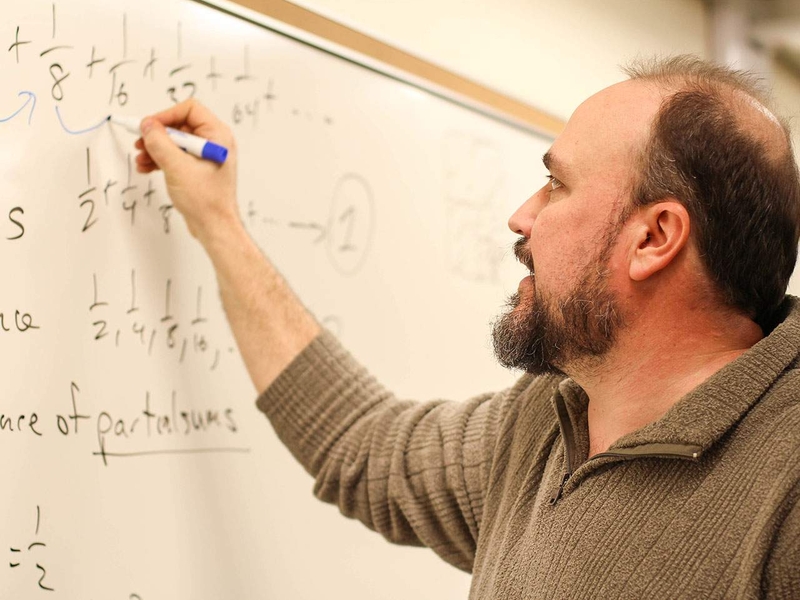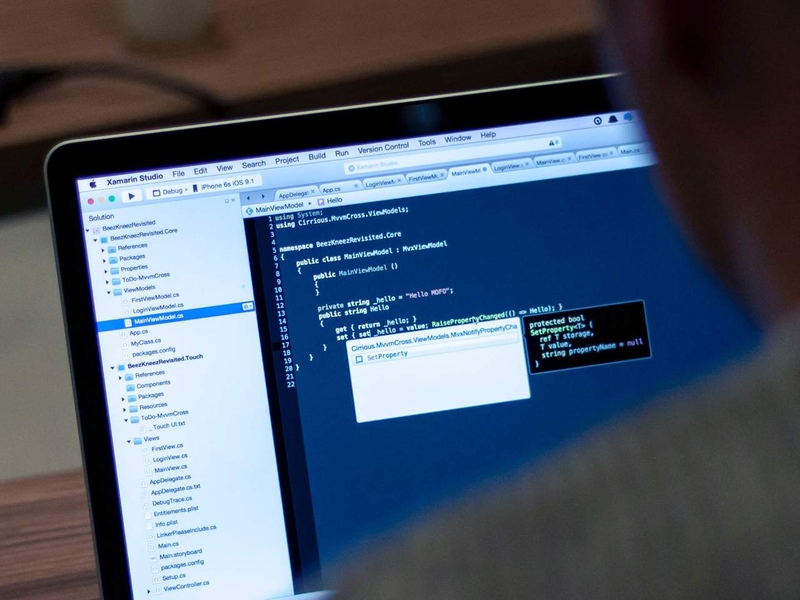South Haven campus will remain remote today. Benton Harbor (BH) campus opens at noon; BH classes starting at noon or later are in-person.
Be the brains behind the programs
Information technology (IT) professionals are in consistently high demand, and those who can apply their technical and problem-solving skills in Software Engineering (programming) can look forward to some of the highest entry-level and median incomes among all career areas. Hands-on learning opportunities are provided in computer labs using state-of-the-art equipment and commercial development tools. Students learn how to read and write code, the elements of program design, prototyping, debugging, revision control, compliance, quality assurance, and project management. The curriculum is grounded in current technology, based on market demand, and aligned with third-party certification. The core program establishes a solid theoretical foundation yet provides room for electives that allow the student to focus on areas such as Database Management, Data Science, Geospatial Information Science, Networking, Operating Systems, or Web Development.
List of Program/Discipline Learning Outcomes
Students who successfully complete the AAS in Software Engineering should be able to:
-
Analyze information systems and technology to identify user requirements and system specifications in systems analysis.
-
Design modular and efficient algorithms using programming logic to solve complex problems in languages such as Java, C++, and Python.
-
Develop interactive and dynamic web applications using JavaScript and foundational web design principles.
-
Implement advanced object-oriented programming techniques in C++ and C# to create robust software applications with graphical user interfaces.
-
Evaluate the performance and efficiency of different algorithms and data structures across multiple programming languages, including C++ and Python.
-
Construct responsive and user-friendly software solutions by integrating software engineering methodologies and design patterns.
-
Illustrate the use of version control and collaborative programming tools to manage software projects effectively.
-
Compare different programming paradigms and languages, such as procedural, object-oriented, and functional, to determine the best application in solving specific problems.
-
Optimize code and software applications to improve performance and resource utilization, using advanced programming techniques in Python and C++.
-
Synthesize diverse programming knowledge to create comprehensive software solutions that address real-world challenges, demonstrating a holistic understanding of the software development lifecycle.
Ready to get started?
Connect with us! Request more information or apply today, and we'll send you everything you need to begin your journey at LMC.



